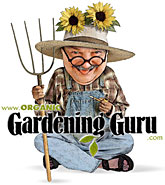If you’ve ever mucked out a barn, you know how far theoretical manure is from the real thing. For quite some time, my life has been confined to the theoretical version. My mucking out days didn’t coincide with my gardening days, so I’ve never used manure in my gardens, first because I didn’t have easy access, and then because I kept hearing scarey things about it.
Imagine me in my desk chair, googling away about manures, at the start of my relationship with the theoretical version. Here’s what I found.
First there were the hormones animals are given to make them grow faster or produce more milk. (Remember rBGH and the fight to require that milk be labeled if it came from treated cows? No? Well, maybe that’s because we lost the fight.)
Then there were the antibiotics, which both prevent disease and also speed growth. (Who’d a thunk it?) In fact, 70% of the antibiotics used in the United States are used on animals, most of them on animals that are not sick. But hey, we’re Americans: we want things big, we want them fast, so when it comes to beef cattle, we want them to get big fast. And as far as I can tell, in this area Americans and Canadians have pretty much moved in lockstep.
Europeans somehow manage without most of this stuff, something to bear in mind when you hear that it’s “necessary.”
Okay, so I learned about the antibiotics and hormones and slumped a bit in my seat. What did this mean for my belief that manure was great for soil and for the future of not just organic gardening, but for organic farming as well?
Well, (and here I sat up straighter) those nasty things can be avoided if one chooses organic manures. Not that antibiotics and hormones are the only pharmaceuticals used on cattle; there are also anti-histamines, anti-parasitics, and anti-inflammatories, both steroidal and non.
This discovery led to a major curvature of the spine. I mean, whether or not whether or not some manure is free of such junk, this is depressing news.
Still—I needed hang onto one fact: the pharmaceuticals could be avoided, and at length perhaps banned. Time to stiffen the upper lip and the spine.
But google had not finished with me: there was more bad news. Leaning back in my chair and eyeing the screen sideways, I read on.
There were pathogens, including E.coli and salmonella, in some manures. As for the nutrients themselves, part of what makes manure so wonderful, even these caused problems: the nitrogen can contaminate both ground water and air, and the phosphorus can contaminates surface water, contributing to algae blooms that use up all the available oxygen, killing off everything else that’s there—oysters, fish, whatever.
By now I couldn’t see the screen, I’d sunk so low. And here’s the final blow, the one that sent me sliding right off my chair:
These are natural parts of manures. So even the organic versions will cause these problems. Meaning that even they can contribute to the dead zone in the Gulf of Mexico. When I wrote about that particular devastation almost four years ago, I titled the post “News Flash: Synthetic Fertilizers Contribute to Global Warming–another reason to go organic.” Well, apparently it’s not quite that simple.
At this point I considered just living under my desk, accepting donations from passing strangers.
Which is about where things stood (or huddled) when I decided to do a podcast on the issue.

 Subscribe to RSS feed
Subscribe to RSS feed



Thanks for sharing an informative post. I guess I never really thought about all of the unwanted things that could be in the manure that I use in my flower beds/garden. Sigh.
Compost is such a wonderful thing… However all the concerns you’ve listed make one pause to reconsider the source material.
I’m very excited to implement actively aerated compost tea. I’ll know exactly what’s in the tea because it’s my compost and I still have the benefits of all the microbial life contained in good compost.
Love the website!
Chris
Thanks for this informative post! I too never really thought about the bad things in compost, I guess one can never be too careful, even with compost!
Great article, I was looking to get the compost in this weekend so will think twice about it and make sure I do so with caution!
Great post! I’m sure you had help many people like me who wanted to try something new, and productive.